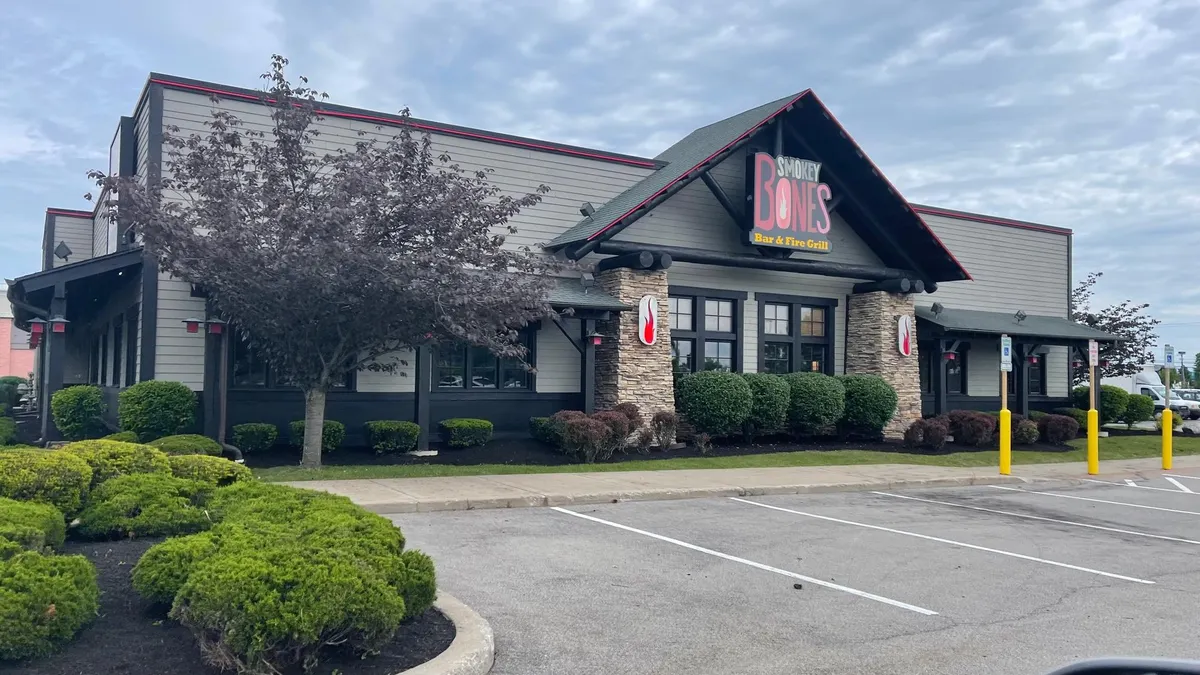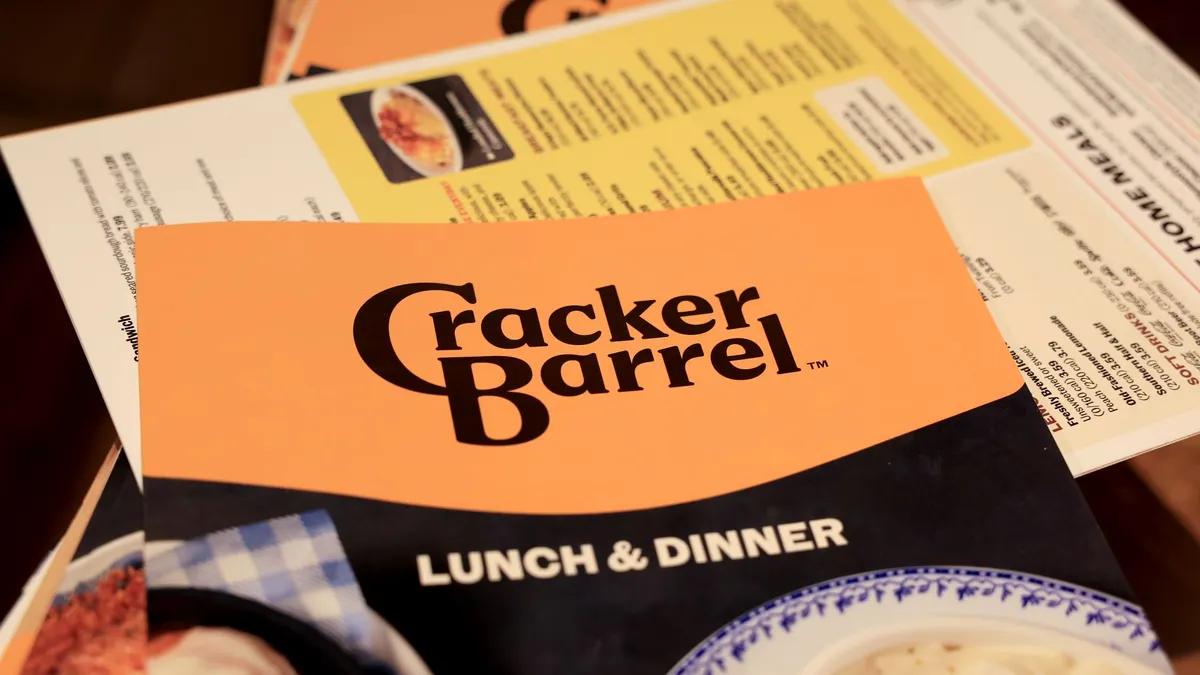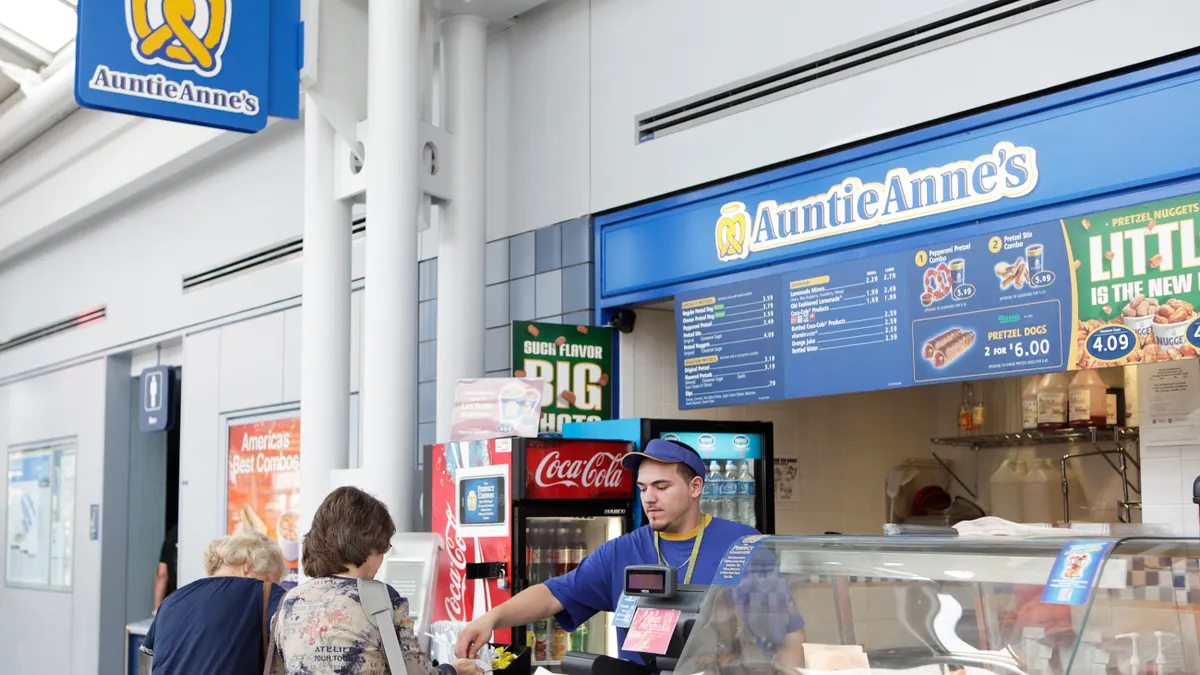This is the third in a series of articles looking at the impact of artificial intelligence and emerging technologies in restaurants.
Technology may be transforming what connection between diners and restaurants look like, but a core motivation remains unchanged: people want to eat where everybody knows their name.
With machine learning, TGI Fridays has been able to learn much more about its guests — from favorite meals to whether they prefer to receive marketing outreach via email or text — and bring that personalization to scale.
“We’ve found that no one associates themselves with a group anymore. They don’t think of themselves as a boomer or a millennial or a soccer mom from Atlanta. [Our customers] were telling us ‘Market to me as an individual,’” Fridays Chief Experience Officer Sherif Mityas told Restaurant Dive. “The only technology that’s available to do that today is machine learning.”
Fridays began investing in artificial intelligence applications shortly after Mityas joined the company as chief information officer in 2016. It has a nearly three-year head start on McDonald’s splashy entry into this space, marked by the launch of its AI-powered drive-thru technology after its $300 million purchase of tech platform Dynamic Yield earlier this year. The fast food giant also recently acquired Apprente, an AI-based, conversational tech firm.
That first-mover advantage will be key to delivering a level of personalization that can cut through the noise of an increasingly crowded market, especially as third-party delivery platforms give diners even more brand options at their fingertips, Rom Krupp, founder and CEO of restaurant tableside ordering and payment platform OneDine, told Restaurant Dive.
“Being ahead by even two years right now is a game changer,” he said. “The quicker you can identify the right messaging for the right guest, the higher the likelihood is you’re gonna win the battle...The chains [who have] adopted AI early enough will be the big winners.”
Adopting AI technologies goes beyond gaining a competitive advantage, Mityas argues — it will be necessary for survival in the near future.
"Being ahead by even two years right now is a game changer. The quicker you can identify the right messaging for the right guest, the higher the likelihood is you’re gonna win the battle."

Rom Krupp
CEO, OneDine
“We’re at the forefront, but [brands] are catching up and making sizable investments, because they’re seeing value just like we are,” he said. “Basically everyone that’s of scale at this point is either actively working on something… or piloting a number of things within their organization.”
Just a few weeks ago, an Outback Steakhouse franchise began testing machine learning tech from Presto to monitor employee and customer interactions, track wait times and customers who leave without being seated or greeted. Data collected from cameras in the lobby is sent to managers and workers in real-time, and the program could eventually monitor other areas, such as the kitchen and dining room. KFC is also considering implementing AI at the drive-thru in ways that mirror McDonald’s and Sonic Drive-In's technologies.
“You have to start dipping your toe in the water. You have to start understanding at least where your data is collected, how to utilize it, how to ensure it’s ready when you’re about to do [an AI] investment because the longer you take, the longer it’s gonna take to catch up,” Mityas said.
AI will soon become an industry-standard technology, Euromonitor analyst Miranda Lambert told Restaurant Dive via email, so casual chains that are historically slow to invest in digital capabilities should seriously consider finding ways to bring machine learning to their brands.
“AI has already proven hugely successful for limited-service companies utilizing personalized promotions within their apps,” she said. “In the coming years, as we are seeing with TGI [Fridays], this will expand to full-service more broadly. Companies already incorporating tablet ordering… can keep track of your orders, offer promotions right at the table, then send follow-up advertisements to your email or social media.”
In the near term, however, small to mid-sized chains may need to remain on the sidelines due to the hefty price tags that come with these digital capabilities.
Front and back-of-house benefits grow over time
Fridays also uses AI-backed scheduling software and an employee app to make back-of-house operations more efficient for general managers. These technologies allow employees to spend less time on administrative tasks and gives them bandwidth to coach team members and engage with guests on the floor.
“Being able to drive better decisions within our four walls… to create opportunities for our general managers to run better restaurants is clearly a very measurable benefit and impact from this technology,” Mityas said. “That goes beyond just pure revenue growth, but to the health of the business itself.”
The restaurant teamed with third-party companies including Amperity, a customer data and identity platform; Conversable, an AI-powered conversational platform used for voice technology; and Hypergiant, an AI consulting firm to develop machine learning tools and data processing systems in-house.
Mityas said that seeking help from outside experts is crucial to driving measurable returns from machine-learning technology.
"We’re all restaurant companies, we’re not Google. We’re not all hiring MIT data scientists on our teams,” he said. "Leveraging those third-parties… helps us stretch the capability in this space and think through how to use it so it becomes more than just a shiny new tool… It actually has real impact on the business.”
Sound data strategy is the main ingredient in driving that impact, Krupp said.
“Twenty-five years ago when I started in this industry… nobody had data. So the people with the best guts were the winners,” he said. “But now a gut without data support is really just someone’s opinion… brands need to adopt data to help empower a strong gut, not replace [it].”
"Being able to drive better decisions within our four walls… to create opportunities for our general managers to run better restaurants is clearly a very measurable benefit and impact from this technology. That goes beyond just pure revenue growth, but to the health of the business itself."

Sherif Mityas
Chief experience officer, TGI Frdays
Restaurants won’t see immediate ROI from AI-backed data collection, however, Mityas cautioned. It takes time to teach machine learning tools which messages will drive the next best action from guests, whether that’s ordering, adding an item to their basket or making a reservation, he said.
Krupp likens the value of machine learning to developing math skills — the foundation builds over time and becomes more valuable as it advances.
Still, Fridays has seen significant results from its AI investments. The chain has nearly tripled it off-premise revenue through its digital capabilities, Mityas said. The restaurant’s financial results in the first year of its AI implementation delivered a seven-fold return on investment. In 2018, technologies for general managers grew store-level profitability by 5%, reduced wait times by 20% and boosted throughput by 10%.
Currently, Mityas feels that AI has had a more significant impact on the guest-facing side of Fridays business than back-of-house, since the diner personalization tools reach millions of guests, compared to the 400 general managers that engage with internal technology.
Fridays’ tools will contribute stronger revenue as the restaurant continues to refine the technology to its needs and it builds its voice capabilities beyond just Alexa and Google Home skills.
“In a couple of years, over half of all searches by consumers will be by voice,” he said. “Continuing to refine the tools and the technologies to be able to really interact with guests through AI-driven, voice-assisted engagement is clearly there… As the tools become more sophisticated… there will be opportunities to further engage in the future to make both of our team members’ as well as our guests’ lives easier.”




















